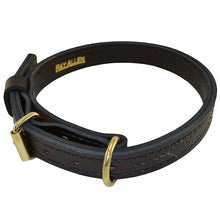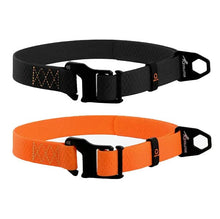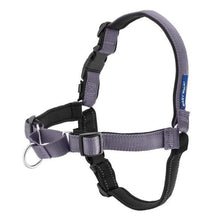How To Tell If Your Dog Is Constipated And What You Can Do About It

Potty problems and dogs are never a fun combo. While diarrhea is a common issue that people want to solve for their pets ASAP, a less talked about yet potentially serious issue is constipation.
Constipation is actually a common ailment for dogs and in its most serious form can be life threatening. Therefore, it’s always good to know that your dog is doing its bowel movement business on a regular schedule and what the symptoms of constipation are.
Just like with people, at times dogs can have trouble passing stool. This problem can be a minor digestive issue but it can also be a signal of a health crisis or even a blockage. Fortunately, most of the times dogs exhibit recognizable signals that they are in distress.

Symptoms of constipation in dogs include:
• Straining to defecate
• Passing hard, dry stool
• Excessive circling
• Scooting
• Frequent unsuccessful attempts
• Passing mucus or water and no feces
• Abdominal pain
• Pain and tension in the back
• Crying and crouching
• Vomiting
• Decreased appetite
• Depression
• Lethargy
Constipation can be caused by a number of problems. Illness, simple changes in routine or diet, or eating something that is now stuck or has caused trauma in the digestive tract can all be culprits.

Causes of constipation in dogs includes:
• Lack of fiber in the diet
• Lack of exercise
• Change in diet
• Dehydration
• Illness
• Medications
• Ingesting excessive fur
• Obstruction, tumor
• Trauma
• Reluctance due to orthopedic injury or pain
• Neurological problems
• Obstruction due to foreign object
• Abscessed anal sacs/glands
• Stress, anxiety
• Aging
• Diabetes
• Kidney failure
• Cancer

When to see the vet for constipation symptoms:
If your dog is showing the signs of constipation or hasn’t had a bowel movement in over 48 hours, your dog is suffering from constipation or may even have some sort of obstruction. Urinary tract infections (UTIs) can also mimic constipation symptoms so if there is fresh poop in the yard but your dog is showing signs of pain and distress, frequently squatting, or asking to be let out only to not be relieved, it could be that.
Either way, your dog needs to see the vet. When you call, let them know your dog is showing signs of constipation (or a UTI). If possible, let them know when they had their last bowel movement. If you’re unsure, let them know what symptoms your dog is having. If your dog has not been able to pass feces in 48 hours, is in distress, or you think it could be a blockage, this is a medical emergency.
Once at the vet or emergency animal hospital, the vet will perform a physical exam and may run tests to rule out any obstructions, tumors, distended colon, rectal exam, etc. This may include x-rays, ultrasounds, CT scans, and blood work.
Once a diagnosis is made, the vet will choose the best course of treatment which may include medication, an enema, diet change, treating an underlying health problem or injury, or even surgery to remove a tumor or obstruction.

How to prevent constipation:
If your pet suffers from occasional constipation or hard stools, after health problems have been ruled out, there are a few things you can do to help prevent it from happening and make your dog more comfortable.
Your vet should also be able to guide you in management and prevention, such as prescribing stool softeners or fiber supplements. Some safe things you can do to help manage occasional minor constipation include:
• Feed a dog food higher in fiber
• Be sure your dog is getting some exercise
• Provide lots of fresh water
• Add more moisture to the diet in the form of wet food
• Add a spoonful of cooked pumpkin to meals
• Add some fresh cooked vegetables to meals
• Prescription dog food
When trying to help a dog with constipation problems, it is best to determine what the cause is before trying home remedies such as giving a stool softener, fiber supplements, or enemas at home, which can cause injury so that a serious problem isn’t overlooked.
Why you should never ignore constipation in dogs:
Ignoring constipation can lead to a very serious problem called “obstipation,” which happens when the colon becomes packed with a large amount of feces that the dog is then unable to pass on its own. This is a serious, painful condition that causes lethargy, loss of appetite, and possibly vomiting. Left untreated, it can damage the colon. Treatment for obstipation must be performed by a veterinarian right away.
As always, we hope you find this information helpful and encourage you to reach out to your vet with any health concerns you have about your pet.
You may also like: The Benefits Of Apple Cider Vinegar For Dogs
























